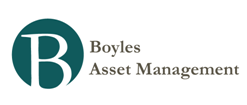Hussman Weekly Market Comment: Dwelling In Uncertainty
As of last week, the combination of evidence we observe continues to be associated with strong recession risk and the likelihood of a "whipsaw trap" in the stock market. We'll respond to new data as it changes, but I expect that the primary window of interest here is about 6-8 weeks. In the event that economic data can produce fairly upbeat readings over that horizon, and the S&P 500 can remain at or about present levels, our estimate of oncoming recession risk would back off fairly quickly. Presently, that outcome would be outside of the norm based on the leading economic measures we track, as well as the overvalued, overbought, overbullish condition of the stock market.
I want to emphasize again that I am neither a cheerleader for recession, nor a table-pounder for recession. It's just that given the data that we presently observe, an oncoming recession remains the most probable outcome. When unseen states of the world have to be inferred from imperfect and noisy observable data, there are a few choices when the evidence isn't 100%. You can either choose a side and pound the table, or you can become comfortable dwelling in uncertainty, and take a position in proportion to the evidence, and the extent to which each possible outcome would affect you.
With most analysts dismissing the likelihood of recession, I have been vocal about ongoing recession concerns not because I want to align myself with one side, but because the investment implications are very asymmetric. A slow but steady stream of modestly good economic news is largely priced in by investors, but a recession and the accompanying earnings disappointments would destroy some critical pillars of hope that investors are relying on to support already rich valuations. We're always open to shifting our investment stance and outlook in response to new evidence, but the "optimistic" evidence that many observers are using to discard recession concerns is generally based on coincident or lagging data.
- Links
How to Feel Safe in Stocks When the Market Seems Dangerous - by Jason Zweig (LINK) Long-term Thinking and Back to Basics - by John Huber (LINK) More than A Dozen Reasons Why Investing in Airlines Belongs in the Too Hard Pile - by Tren Griffin (LINK) Michael...
- Hussman Weekly Market Comment: Dodging A Bullet, From A Machine Gun
Leading economic evidence continues to teeter at levels that have always and only been breached in recessions, but the sharp deterioration we initially observed late last year has been followed by modest stabilization - though still near the area that...
- Hussman Weekly Market Comment: Hard-negative
With the exception of extreme market conditions (see Warning- Examine All Risk Exposures , and Extreme Conditions and Typical Outcomes ), I try not to wave my arms around about near-term market risks, but I think it's important to cut straight to...
- Hussman Weekly Market Comment: Have We Avoided A Recession?
In our view, it is very difficult to obtain useful views about economic direction using the standard "flow of anecdotes" approach that is the bread-and-butter of many analysts. The economic data reported daily are a mix of leading, coincident and lagging...
- Hussman Weekly Market Comment: Europe: Just Getting Warmed Up
Last week, the financial markets mounted a striking shift back to the "risk-on" trade, as investor concerns about a recession were abandoned, and Wall Street came to believe that Europe will easily contain its banking problems. Accordingly, downside protection...

